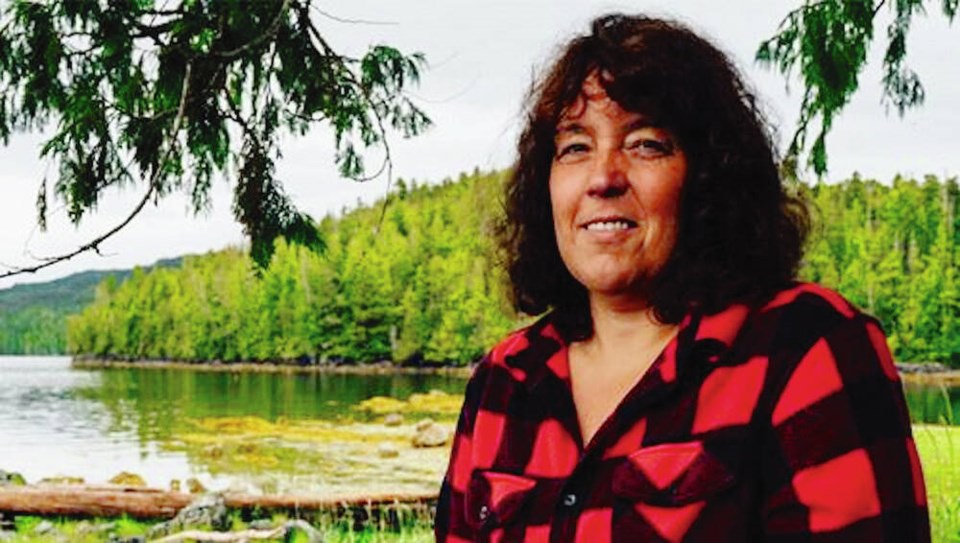When Susan Simmons wanted to raise money to support people with multiple sclerosis, she hopped into Juan de Fuca Strait and swam 33 kilometres from Port Angeles to Ogden Point.
Not long after that 2017 feat, the MS Wellness Centre Association of Vancouver Island was formed.
“That was how we raised the initial funds for the group,” said Simmons, who found a passion for swimming after being diagnosed with MS 30 years ago.
Simmons, 59, said she actually didn’t intend to swim across the strait at first, but was determined to do something for the MS community after a local MS facility closed in 2016.
“I wanted them to know there are people here that care, and that I cared enough to jump into this crazy body of water.”
Her previous distance swims at the time included a 70-kilometre double crossing of Cowichan Lake in 2014. She also has plans to swim around Pender Island next summer to raise money for the centre once again.
Simmons said the centre has just received a $10,000 grant from the Victoria Foundation that helped pay for brochures and other ways to let people know about the services it provides.
“The timing of the grant was perfect,” she said. “We want to do some outreach work with physiotherapists, doctors, different clinics, and just let them know we’re here.
“We want to start growing the number of people that we’re helping.”
The centre is largely virtual, and members meet regularly at a variety of locations, including a weekly coffee chat at Hillside Shopping Centre and a monthly meet-up at the Yakimovich Wellness Centre on Hillside Avenue, Simmons said.
“We do education sessions there. We have people come in and talk about different types of therapy, alternative therapies and breakthrough therapies, things like that.”
It also holds an aquafit class at the Esquimalt Recreation Centre.
Simmons said the centre has about 200 members who are dealing with MS, a degenerative neurological disorder affecting the brain and spinal cord. They all know the value of taking care of yourself when you have MS, she said.
“We always want to start from a place of wellness — the healthier you are, the better off you’ll be with managing your condition.”
It’s a very different approach from the thinking when she first had MS, Simmons said.
“When I was diagnosed, I was told don’t exercise,” she said. “Now they say it’s very good for you.”
Simmons joked, however, that she took the encouragement to exercise “to an extreme.”
She said that when people are first diagnosed with MS, they don’t know how they will be affected, or how severe their symptoms will be, so it’s helpful to have someone to talk to who also has the disorder.
“You’re terrified,” she said. “What we want for people that are newly diagnosed is to have somebody to talk to that has MS. We can provide them with information.”
While MS can develop at any age, it most commonly turns up from 20 to 40. Symptoms can include muscle stiffness, weakness in the legs, blurred vision, bowel and bladder issues, and mental issues such as forgetfulness.
Canada has one of the world’s highest MS rates, with about 90,000 people diagnosed — around 8,500 of them in B.C.
Approximately 12 Canadians are diagnosed with MS every day, and about 75 per cent of Canadians with MS are women.
For more about the centre and its services, visit mswellnesscentre.ca/.



